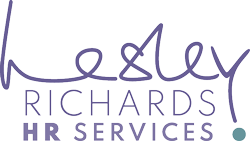For me, Halloween marks the start of the count-down to Christmas, with cold frosty mornings and dark starry nights. And, though not this year, plenty of little goblins, witches and gangs of batmen on our doorsteps, looking more gruesome and scary with each passing year – a tradition harking back to times where people donned masks to protect themselves from bad spirits roaming the earth on All Hallows’ Eve.
Like most things these days, we can find a connection to life with Coronavirus. Thousands of years later, masks have become a way of life. Do they make us feel safe? Or do they heighten our anxiety? Don’t leave home without one. Wear them in indoor public places, wear them in public outdoor spaces, this week I’ve read that we should think about wearing them in our own homes, and yes, even to bed!
But what about emotional masks – the ones we hide behind because of our own feelings of inadequacy. If we’re insecure, we might hide behind the mask of name-dropping. If we’re unsure of our ability, we can hide behind the mask of bullying. If we don’t think the world loves us, we can hide behind a mask of aggression. We mask the debt we’ve incurred to pay for lifestyles beyond our reach; we act as though things are fine at work when our jobs are on the line; we pretend things are okay in our relationships when communication has broken down.
And what about the workplace – the psychological masks we wear for fear of people finding us out? I always thought that Imposter Syndrome was something you spotted in others, someone who you feel is operating beyond their ability, empty vessels making lots of noise. But no – it’s something we impose on ourselves – feeling like a fake… that we don’t really belong… that we aren’t as successful as we lead people to believe we are? Just reading that sentence, can you imagine the pressure this puts on people?
As we go into another national lockdown, the effect on our mental health of months of limited contact with family and friends, seemingly endless months of working from home, and “just” grappling with the great unknown, can’t be ignored. Patience is wearing thin. Tempers are fraying. Paranoia is heightened. People are vying for airtime – not being seen is being compensated for by being heard. Are those workplace masks beginning to slip?
Perhaps now’s the time that we give ourselves a bit of a break and rip those masks off. Here are just three reasons why:
Be yourself… We all bring a bit of who we are to what we do. Yes – there are people with the same skillset, and yes – some may do the job better. But nobody brings the same approach, personality, creativity and spirit to the job. Masking the bit of us that makes us unique might be taking away our greatest potential.
Be yourself… It must surely be exhausting to pretend to be someone you’re not – putting a mask on for an hour, swapping it for another one, changing it again to talk to a different person. We might even end up with several on at the same time! At what point does who you pretend you are start blurring with who you really are? And when it comes down to it, will persona win over personality?
Be yourself… We weren’t born with masks. We put them on, so we can take them off. What’ll happen if you stop pretending to be this, that, the other? Chances are you decided you needed to alter your behaviour, so the answer to that is “probably nothing”. Challenge yourself to revisit those negative – and especially the self-imposed – thoughts.
So – to square the circle – has Covid-19 brought a change in the role of masks? Rather than setting us apart, doesn’t it make us feel part of a “club” – one that sees us all working together to keep each other safe?
Maybe it’s time for an authentic leadership revolution – one where we take our self-inflicted masks off. As Oscar Wilde said, “Be yourself; everyone else is taken”.
